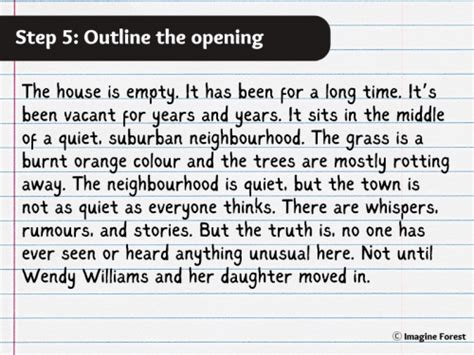
A Memorial Day social media post by country music icon Tanya Tucker, 73, has ignited controversy online, drawing criticism for perceived insensitivity and historical inaccuracies in its depiction of Confederate soldiers.
Country music legend Tanya Tucker is facing backlash after posting a Memorial Day tribute that included imagery some deemed insensitive and historically inaccurate. The 73-year-old singer’s since-deleted post featured a graphic with Confederate soldiers, prompting widespread outrage and accusations of downplaying the significance of Memorial Day and its solemn purpose of honoring those who died serving in the U.S. military. The incident highlights the ongoing sensitivities surrounding Confederate symbols and their connection to the history of slavery and racial inequality in the United States.
Tucker’s initial post, shared across her social media platforms, quickly garnered negative attention. Many users expressed their disappointment and anger, pointing out that Memorial Day is specifically intended to commemorate the sacrifices of American soldiers who died fighting for the United States, not those who fought against it. The inclusion of Confederate imagery was viewed as particularly offensive, given the Confederacy’s secession from the Union to preserve slavery.
“Confederate soldiers are traitors who fought against the United States. Memorial Day is for American soldiers,” one user commented on X (formerly Twitter). Another wrote, “Using Confederate imagery on Memorial Day is deeply disrespectful to the veterans who fought to defend the United States.”
The backlash prompted Tucker to remove the original post and issue an apology. In a follow-up statement, she explained that her intention was to honor all fallen soldiers, regardless of the side they fought on, and that she did not intend to cause offense. “I want to sincerely apologize for the Memorial Day post that was shared earlier today,” Tucker wrote. “The intention was to honor all service men and women but I now realize it was insensitive and wrong. We have taken it down. I am truly sorry.”
However, the apology has done little to quell the controversy. Many critics argue that Tucker’s explanation demonstrates a lack of understanding of the historical context and the pain caused by Confederate symbols. Some have called for a more substantial apology and a commitment to educating herself about the issues surrounding race and the Civil War. Others have defended Tucker, suggesting that the controversy is an overreaction and that her intentions were genuine. This incident underscores the complexities surrounding historical memory, patriotism, and the ongoing debate over Confederate symbols in American society.
According to historical sources, Memorial Day, originally known as Decoration Day, was established after the Civil War to honor the Union soldiers who died in the conflict. It was officially proclaimed on May 5, 1868, by General John A. Logan, commander-in-chief of the Grand Army of the Republic, and first observed on May 30, 1868. While some Southern states also have days to honor Confederate dead, Memorial Day is a federal holiday dedicated to those who died serving in the U.S. military.
The controversy surrounding Tucker’s post reflects a broader national conversation about how to reconcile the different narratives of American history and how to address the legacy of slavery and racial injustice. Confederate symbols, such as the Confederate flag and statues of Confederate leaders, have become increasingly contentious in recent years, with many arguing that they represent white supremacy and oppression. Others maintain that these symbols are a part of Southern heritage and should be preserved. This debate has played out in various contexts, from the removal of Confederate monuments to the renaming of schools and streets.
The incident involving Tanya Tucker also raises questions about the role of celebrities in addressing sensitive social and political issues. While celebrities often use their platforms to advocate for various causes, they also face scrutiny and criticism when their statements or actions are perceived as insensitive or misinformed. In this case, Tucker’s attempt to honor fallen soldiers was overshadowed by the inclusion of Confederate imagery, highlighting the importance of understanding the historical context and potential impact of one’s words and actions.
The fallout from Tucker’s post has also reignited discussions about cancel culture and the extent to which individuals should be held accountable for past mistakes or perceived missteps. Some argue that Tucker’s apology should be accepted and that she should not be subjected to further condemnation. Others maintain that her actions warrant a stronger response, such as a boycott of her music or public appearances. This debate reflects the broader tensions surrounding free speech, accountability, and the power of social media to shape public opinion.
In the wake of the controversy, many are calling for greater education and dialogue about the history of the Civil War and the legacy of slavery. Some organizations are offering resources and workshops to help individuals and communities engage in constructive conversations about these sensitive topics. Others are advocating for policy changes to address systemic racism and inequality. The incident involving Tanya Tucker serves as a reminder of the importance of historical awareness and the need for ongoing efforts to promote understanding and reconciliation.
This is not the first time a country music artist has faced criticism for their association with Confederate symbols or imagery. In recent years, several artists have been called out for displaying the Confederate flag at concerts or in music videos, prompting similar debates about race, heritage, and the role of Confederate symbols in American culture. These incidents have often led to apologies, explanations, and renewed calls for greater sensitivity and awareness within the country music industry.
The controversy surrounding Tanya Tucker’s Memorial Day post underscores the challenges of navigating complex historical and social issues in the age of social media. While social media platforms can be powerful tools for communication and advocacy, they can also amplify misunderstandings and exacerbate tensions. In this case, a seemingly well-intentioned post quickly spiraled into a controversy that has sparked widespread debate and raised important questions about race, history, and the responsibility of public figures. The long-term impact of this incident remains to be seen, but it serves as a cautionary tale about the importance of careful consideration and sensitivity when addressing sensitive topics in the public sphere.
Further complicating matters, some fans have pointed to Tucker’s past support for veterans and military families, arguing that the post was simply a misstep and not indicative of her true beliefs. Others have highlighted her history of speaking out on social issues, including her support for LGBTQ+ rights and her advocacy for animal welfare. These factors add layers of complexity to the controversy and raise questions about how to fairly assess the intentions and actions of public figures in the context of social media.
The incident also highlights the generational divides in how people view Confederate symbols and the Civil War. While younger generations are often more likely to view these symbols as symbols of hate and oppression, older generations may have a more nuanced perspective, viewing them as part of their heritage or as symbols of Southern pride. These generational differences can lead to misunderstandings and conflicts, particularly in the context of social media, where diverse perspectives are often amplified and polarized.
In conclusion, the controversy surrounding Tanya Tucker’s Memorial Day post serves as a microcosm of the broader challenges facing American society as it grapples with its complex history and strives to create a more just and equitable future. The incident underscores the importance of historical awareness, sensitivity, and ongoing dialogue about race, heritage, and the legacy of slavery. It also highlights the power of social media to shape public opinion and the responsibility of public figures to use their platforms wisely and thoughtfully. While the fallout from Tucker’s post may continue to unfold in the coming days and weeks, it has already sparked important conversations and raised crucial questions about how to best honor the past while building a better future.
Frequently Asked Questions (FAQ)
1. What was the controversy surrounding Tanya Tucker’s Memorial Day post?
Tanya Tucker, a 73-year-old country music icon, posted a Memorial Day tribute on social media that included imagery of Confederate soldiers. This sparked outrage because Memorial Day is intended to honor American soldiers who died serving the United States, not those who fought against it during the Civil War. The inclusion of Confederate imagery was seen as insensitive and disrespectful, given the Confederacy’s association with slavery and racial inequality.
2. Why was the inclusion of Confederate imagery in the Memorial Day post considered offensive?
The Confederacy seceded from the United States in 1861 to preserve the institution of slavery. Confederate soldiers fought against the Union in the Civil War. For many, Confederate symbols represent white supremacy, racism, and oppression. Using Confederate imagery on Memorial Day, a day to honor those who died defending the United States, is seen as disrespectful to veterans and insensitive to the history of slavery and its ongoing impact.
3. What was Tanya Tucker’s response to the backlash?
Tanya Tucker removed the original post and issued an apology. She stated that her intention was to honor all service men and women, but she realized the post was insensitive and wrong. She expressed her sincere apology and took down the post. However, the apology has not completely quelled the controversy.
4. What is Memorial Day and its significance?
Memorial Day is a federal holiday in the United States observed on the last Monday of May. It is a day to honor and remember the men and women who died while serving in the U.S. military. Originally known as Decoration Day, it was established after the Civil War to commemorate the Union soldiers who died in the conflict. It was officially proclaimed on May 5, 1868, by General John A. Logan, and first observed on May 30, 1868. While some Southern states have separate days to honor Confederate dead, Memorial Day is specifically for those who died serving the U.S.
5. How does this incident reflect broader issues in American society?
This incident reflects the ongoing debate about how to reconcile different narratives of American history, address the legacy of slavery and racial injustice, and navigate sensitivities surrounding Confederate symbols. It also highlights the role of celebrities in addressing social and political issues, the complexities of social media communication, and the tensions between free speech and accountability. Furthermore, it touches upon generational divides in perspectives on Confederate symbols and the Civil War. The controversy underscores the need for greater historical awareness, sensitivity, and constructive dialogue about these sensitive topics.
In-depth Analysis, Background Information, and Expanded Context:
The controversy surrounding Tanya Tucker’s Memorial Day post delves into the deeply rooted and often contentious issues of historical memory, racial sensitivity, and the appropriate use of symbols in public discourse. The backlash Tucker faced was not simply about a perceived error in judgment; it tapped into a complex web of historical narratives, social justice concerns, and the evolving role of public figures in addressing these issues.
Historical Context of Memorial Day and Confederate Imagery:
Memorial Day’s origins are intimately tied to the aftermath of the Civil War, a conflict that tore the nation apart over the issue of slavery. The holiday, initially called Decoration Day, emerged as a way to honor the Union soldiers who perished defending the United States and fighting against the Confederacy. By extension, it implicitly condemned the Confederacy and its cause, which was fundamentally linked to the perpetuation of slavery.
Confederate symbols, including the Confederate flag and images of Confederate soldiers, have become increasingly controversial in recent decades. While some argue that these symbols represent Southern heritage and pride, others view them as symbols of white supremacy, racism, and a painful reminder of the history of slavery and oppression. This division in perspectives is not merely a matter of opinion; it reflects fundamentally different understandings of American history and the legacy of slavery.
The Significance of the Medium: Social Media and Public Discourse:
The fact that Tucker’s post was shared on social media amplified the controversy significantly. Social media platforms have become powerful tools for communication and advocacy, but they also present challenges. The speed and reach of social media can quickly escalate misunderstandings and turn them into full-blown controversies. Furthermore, the often-polarized nature of online discourse can make it difficult to have nuanced conversations about sensitive topics.
In this case, Tucker’s post, which may have been intended as a general tribute to fallen soldiers, was quickly dissected and criticized by users who found the inclusion of Confederate imagery deeply offensive. The lack of context and the potential for misinterpretation inherent in social media communication contributed to the rapid escalation of the controversy.
The Role of Celebrities and Public Figures:
Celebrities and public figures often face intense scrutiny for their words and actions, particularly when they address sensitive social or political issues. While they have the power to influence public opinion and raise awareness about important causes, they also bear a responsibility to be informed and sensitive to the potential impact of their statements.
In Tucker’s case, her attempt to honor fallen soldiers was overshadowed by the controversy surrounding the Confederate imagery. This highlights the importance of understanding the historical context and potential ramifications of one’s words and actions, especially when dealing with issues related to race, history, and social justice.
The Concept of “Cancel Culture” and Accountability:
The backlash against Tucker’s post also raises questions about “cancel culture” and the extent to which individuals should be held accountable for past mistakes or perceived missteps. Some argue that Tucker’s apology should be accepted and that she should not be subjected to further condemnation. They believe that she made an honest mistake and that it is unfair to punish her excessively for it.
Others maintain that her actions warrant a stronger response, such as a boycott of her music or public appearances. They argue that her post was not simply a mistake but a reflection of a deeper lack of understanding about the historical context and the pain caused by Confederate symbols. This debate reflects the broader tensions surrounding free speech, accountability, and the power of social media to shape public opinion.
Generational Differences and Perspectives on Confederate Symbols:
As previously mentioned, generational differences play a significant role in how people view Confederate symbols and the Civil War. Older generations, particularly those in the South, may have grown up with these symbols as part of their heritage and may not fully understand the offense they cause to others. Younger generations, on the other hand, are often more likely to view these symbols as symbols of hate and oppression.
These generational differences can lead to misunderstandings and conflicts, particularly in the context of social media, where diverse perspectives are often amplified and polarized. It is important to recognize and respect these differences while also striving to promote greater understanding and empathy.
The Importance of Education and Dialogue:
The controversy surrounding Tucker’s post underscores the importance of education and dialogue about the history of the Civil War and the legacy of slavery. Many people lack a comprehensive understanding of this period in American history and the lasting impact it has had on society.
By providing accurate and accessible information about the Civil War and the Confederacy, we can help to dispel myths and misconceptions and foster a more informed and nuanced understanding of the past. Furthermore, by encouraging open and respectful dialogue about these sensitive topics, we can create space for people to share their perspectives and experiences and work towards reconciliation.
The Broader Implications for the Country Music Industry:
The Tanya Tucker controversy is not an isolated incident. In recent years, several country music artists have faced criticism for their association with Confederate symbols or imagery. These incidents have often led to apologies, explanations, and renewed calls for greater sensitivity and awareness within the industry.
The country music industry, which has historically been associated with Southern culture and traditions, has a particular responsibility to address these issues. By promoting diversity and inclusion and by actively condemning racism and discrimination, the industry can help to create a more welcoming and equitable environment for all.
Moving Forward: Promoting Understanding and Reconciliation:
The controversy surrounding Tanya Tucker’s Memorial Day post serves as a reminder of the ongoing challenges facing American society as it grapples with its complex history and strives to create a more just and equitable future. It is essential to learn from this incident and to use it as an opportunity to promote greater understanding, empathy, and reconciliation.
This requires a multi-faceted approach that includes:
- Historical Education: Providing accurate and accessible information about the Civil War and the legacy of slavery.
- Open Dialogue: Creating space for people to share their perspectives and experiences in a respectful and constructive manner.
- Cultural Sensitivity Training: Educating individuals and organizations about the potential impact of their words and actions on different groups.
- Policy Changes: Addressing systemic racism and inequality through legislative and policy reforms.
- Support for Organizations: Supporting organizations that are working to promote racial justice and reconciliation.
By working together, we can create a society where all people are treated with dignity and respect and where the legacy of slavery is confronted honestly and openly. The Tanya Tucker controversy is a difficult but important moment in this process. By learning from it, we can move closer to a more just and equitable future for all.









